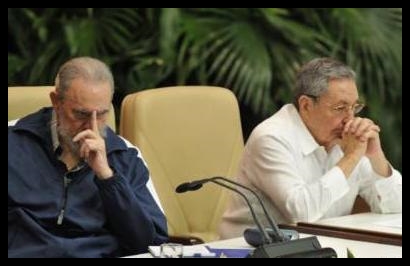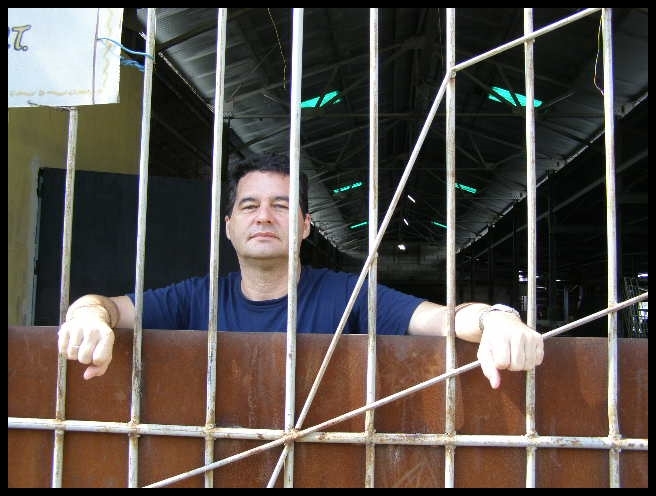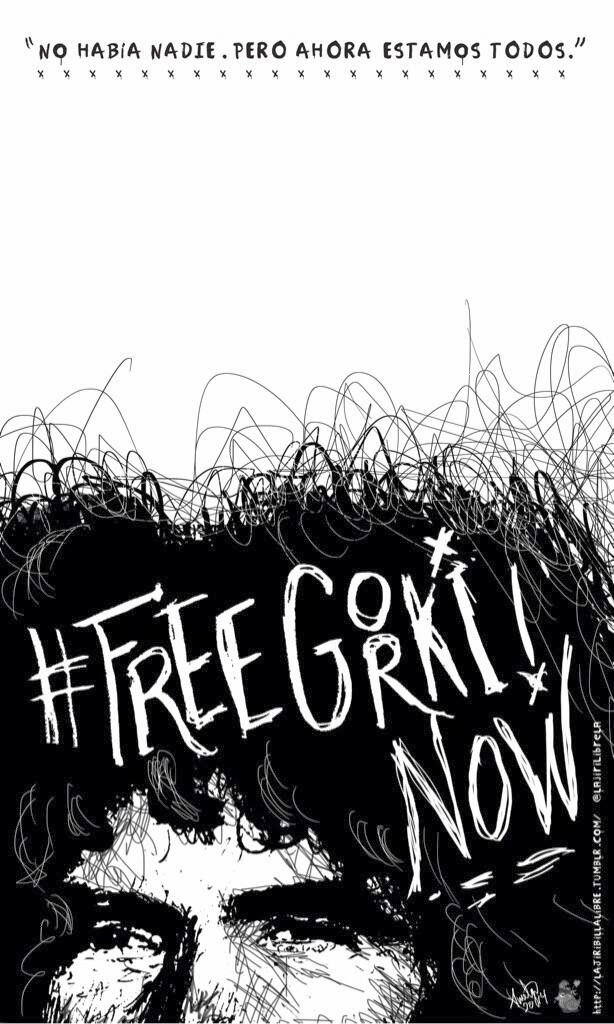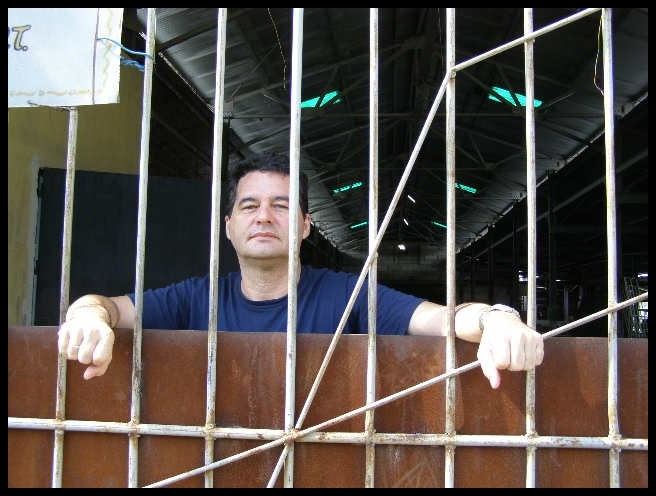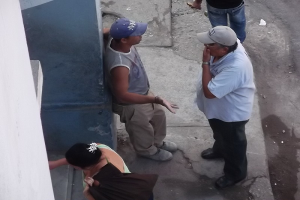
HAVANA, Cuba — There is not a single time that the phone rings for good news; these days every conversation is based on arrests, beatings and demonstrations, an eloquent way to carry out the Summit of CELAC (Community of Latin-American and Caribbean States) which turned into a parody of the famous novel “Wuthering Heights” by Englishwoman Emily Bronte.
But although the meeting was held in Havana, the capital was not the only place where these situations were produced. In other sites as distant as the eastern provinces also there were moments of tension because of the repressive work of the political police.
In Manzanillo, Granma province, on January 28, some members of the Cuban Community Communicators Network could not leave their homes, as, for example, Xiomara Moncada Almaguer who wanted to visit her ill six-year old grandson; when she came out of her house, six women armed with parasols attacked her in front of State Security officer Camilo Mandiel (alias The Joker), who permitted them to hit the peaceful woman.
Leonardo Cancio Santana Ponce tried to leave his house — on the same day — on bicycle and was impeded by Captain Napoles, Sector Chief, whom he found in the company of four State Security officers, among them Alexis Guerra and the older Able Guevara. Cancio explained that they lifted him and threw him inside his house, together with the bicycle. A drunk neighbor, by the name of Pedro, defended him, yelling “abusers,” and they arrested him.
Also, the house of Tania de la Torre Montesinos, in Manzanillo, was under surveillance by political police, and they did not allow her daughter Ariuska Marquez to go out to the street, in spite of the fact that she is not a dissident activist.
In Holguin province, at two in the afternoon, a demonstration against Doctor Ramon Zamora Rodriguez began at his house on Avenue of the Americas 66 between Comandante Fajardo and Playa Giron in the Ramon Quintana Division; it lasted until 9 at night. The cheerleaders broke the fence of the house, the windows and the door by stoning and body slams; but what is most regretful is that they hit his 13-year-old son. When they withdrew, those in the dwelling tried to fix some of the damage, but they had to put furniture behind the door in order to be able to sleep with some security. The next day, several dissidents went to try to repair all the breakage done by the mob.
In the basement of my home
On the 29th — like one more Wednesday — no one was permitted to enter my home, and I was under house arrest. A mob of some 10 or 12 people on the stairs, some of them neighbors who were paid in the morning to dedicate themselves to those functions, did not let anyone up. Our collaborator Arnaldo Ramos Lauzurique asked them to identify themselves in order to learn with what authority they were doing this, and one of the repressors, by the name of Juan Carlos, (a well-built man of about 35 years of age), who in April 2013 beat me inside my house, went up to Arnoldo, and the State Security officer there had to intervene so that he would not hit him, because he surely had orders to do so if something occurred. You have to remember that Arnoldo is a man of 73 years of age who suffered 8 years in prison.
From this unclean practice the following community communicators were arrested: Evelyn Pineda Concepción, Laudelina Alcalde, Maritza Concepción Sarmientos, Blanca Hernández Moya, Arnaldo Ramos Lauzurique, José Antonio Sieres Ramallo, Juliet Michelena Díaz, Billy Joe Landa Linares, Julia Estrella Aramburu Taboas (seized two times because they jumped on her when she returned), Juan Carlos Díaz Fonseca and Judit Muñiz Peraza.
The first three women in this regard were transferred in a patrol car — the same as everyone — but with the special feature that they left them in the township Melena del Sur in the Mayabeque Province. When they arrived at that place, a clearing, they told the police that they were not going to get out there, and they said they were complying with orders, that if they did not get out of the car, they would get them out by force.*
Also, Julia Estrella Aramburo Taboas, in her second effort to enter her home, was arrested and taken by patrol car past the town of Santiago de las Vegas. She resides in Central Havana township and found herself alone.
If the protagonist of Wuthering Heights saw the specter of a woman, in the Cuban parody we are in front of a ghost that has turned into a nightmare for the opposition, but unfortunately no president of the democratic countries of Latin America, who have just visited Havana, have seen it.
*Translator’s note: A popular tactic now is for State Security or the police to simply pick up dissidents and drive them to ’the middle of nowhere’ and abandon them, never recording any arrest or detention.
Cubanet, January 30, 2014, Martha Beatriz Roque Cabello
Translated by mlk.
31 January 2014



